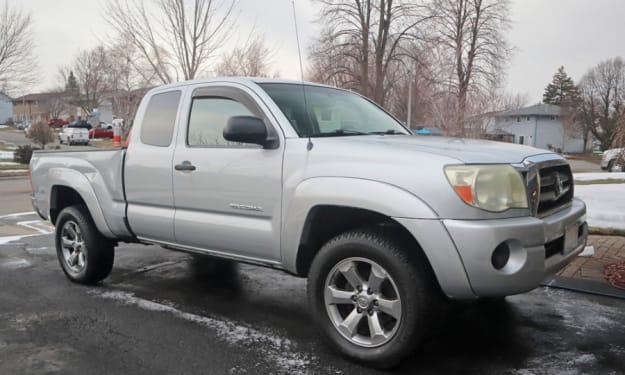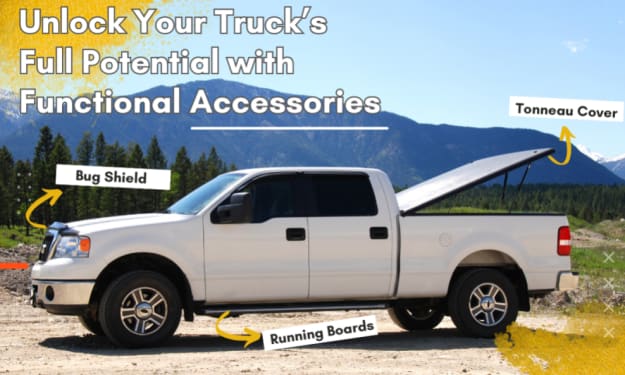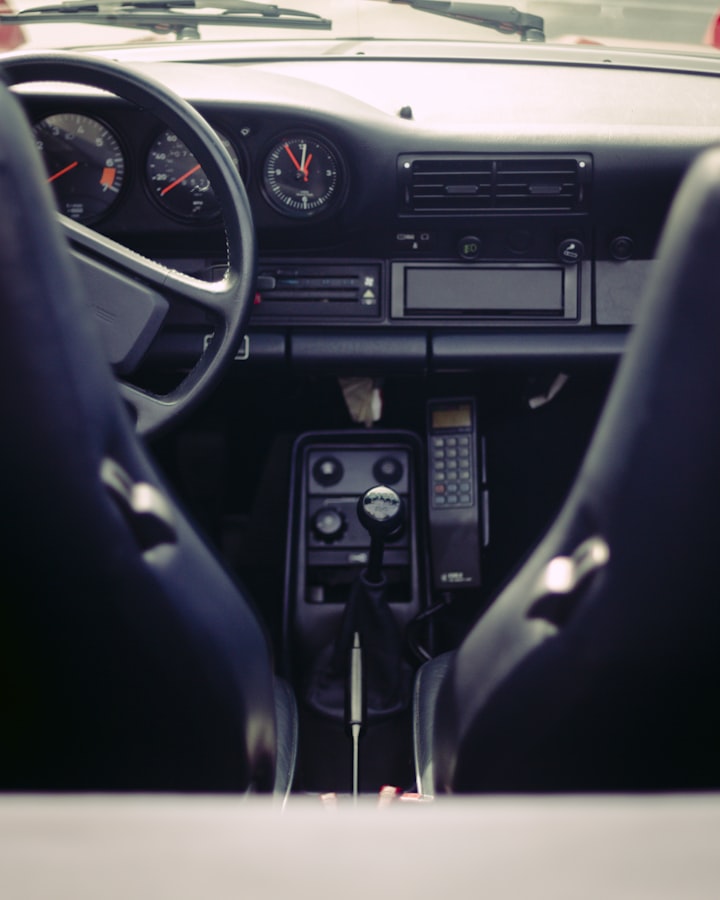Essential Tips For Driving Pickup Truck During Heavy Rain
Driving during heavy rain is not an easy task. You have to be more careful and alert than usual. Let your pickup truck help you drive through heavy rain safely with these tips.

Driving during heavy rain can be a daunting task as roads become more unsafe. Wet roads present risks such as skids, hydroplaning, and losing control of your vehicle. Waiting for the weather to improve is always the best option to stay safe, but that might not always be possible. Rain can happen at any time. It may start to pour while you're in the middle of your trip.
Your pickup truck can help you tackle hazardous roads caused by inclement or torrential weather. Trucks with four-wheel drive are equipped with improved traction and handling, making them stable and better in slippery roads and rainy weather. However, driving a pickup truck alone won't be enough to keep you safe on the road. Here are some tips to help you drive safely during heavy rain.
- Check The Weather For The Day
Check your region's weather forecast before you hit the road. Take a few minutes to check the weather conditions for the day via online news, weather app, or on the radio. Having an idea of the weather can help you plan your activity for the day and anticipate the rain while driving.
2. Inspect Your Pickup Truck Before You Leave
It is important to inspect parts of your pickup truck to see if they're in good condition and working properly to drive you through the rain. Check for worn-out parts that need replacement. Ensure that your wipers are clean and working correctly. Check your headlights and taillights for any indication of a weak light or broken bulb. Replace them immediately with lights that are effective for such weather.
Check if your tires are properly inflated, and the treads are intact. Your tires should be capable of providing traction and resistance to hydroplaning to keep you steady on the road. Immediately replace worn-out tires to prevent loss of traction and control while driving.
Make sure that the engine's components are in good shape to prevent engine failure while driving. Heavy rain may cause internal damage that may lead to a misfire, triggering your check engine light. Check the battery as well to see if it is functioning at its best. Harsh weather conditions can strain your truck's battery due to the use of the AC, wipers, and lights. A dead battery can get you stranded, which is dangerous, especially in heavy rain.
3. Enhance Your Truck With Parts And Accessories
The aftermarket offers a lot of truck parts and accessories that can improve your rig's capability in driving through harsh weather conditions. Some of these can be used year-round, so you don't have to worry about taking them off. To give you an idea, here are some of the parts that can help you drive through heavy rain safely.
- Tires
Pickup trucks have a lot of options for tires that can handle any terrain and weather conditions. Wheels and tires that can handle wet roads and any weather conditions are widely available and easy to get in the aftermarket. Like BF Goodrick tires, all-season tires are ideal replacements for stock tires that aren't fit for driving on wet roads. These tires have adequate tread depth that resists hydroplaning better than common tires. They expel water better, providing more surface contact, grip, and traction.
- Lights
Lights are extremely important in maintaining your visibility during heavy rain. Lights are the immediate indicator of your location during zero visibility caused by heavy rainfall. Other drivers can use your taillights as a guide to navigating the road.
Having lights with warmer colors work well in rain, fog, and snow as they cut through them to give you better visibility of the road. Most truck owners use fog lights to provide these warm lighting as they aren't optimal to use in clear conditions.
- Tonneau Covers
Keep your truck bed dry with tonneau covers. Most tonneau covers are waterproof, able to deflect most water from getting inside your truck bed. If you have to bring some cargo, it is better to have them covered to keep them dry while driving during the rain. BakFlip and Access Tonneau covers are easy to install and guarantee to secure your cargo from any precipitation.
- Mud Flaps
Mud and water are constantly in contact with your truck during rainfall. Mudflaps or splash guards act as additional protection to your truck's wheelwell, undercarriage, and rear from these road elements. They safely deflect mud and water away from your truck, preventing corrosion and damage to some of its parts.
4. Eliminate Distractions
Eliminating distractions can help you have a better perception of your surroundings while it's raining. It will keep you alert and more focused on the road. Turning down the radio volume is an excellent example of a way to lower distraction and allow you to be more focused on driving.
5. Slow Down
When heavy rain starts to fall, drive with caution by slowing down. Traction decreases, and chances of hydroplaning happening are higher during rain. Reducing your speed ensures that your pickup truck won't hydroplane and maintain consistent contact on the road.
6. Avoid Heavy Braking
Heavy Braking can cause your truck to skid and the wheels to spin out of control. Brakes won't respond as they would in dry condition. You need to ease on the brake by accelerating lightly and slowing down your vehicle.
7. Increase Your Distance
Increase your following distance by about seven seconds from the vehicle in front of you. Increasing your following distance can prevent the risk of collision with other cars. Leaving plenty of room between your truck and the other drivers can help adjust your driving when you need to change lanes, make a turn, or stop.
8. Turn Off Your Cruise Control
Driving with cruise control during heavy rain can inhibit you from feeling the road and sensing hydroplaning and engine brake. This may result in losing control of the vehicle and loss of traction on wet roads. Drivers must be fully engaged in their trucks while driving during heavy rain.
9. Turn On Your Lights
Visibility gets worse the harder it rains. Turn your headlights as soon as it rains, regardless if it's day or night. Lights improve your vision during heavy rain. It lets you spot other vehicles to help you maintain a safe distance from them. Your taillights also provide your location to other drivers. Use low beam headlights when driving during rainy nights to reduce glare to other vehicles. Refrain from using your hazard lights as they may confuse other drivers since they won't be able to understand what you're doing.
10. Postpone Any Plans Of Towing And Off-roading
Towing and hauling get riskier in heavy rain. Towing with your pickup truck can get more uncomfortable in such weather conditions. Aside from the rain, you need to consider the strength of the wind and the amount of water on the road. Unless you are sure of your driving skills, it would be best to postpone towing for some other time.
The same goes for off-roading, as trails become more dangerous in the rain. The terrain becomes more slippery, leading to the risk of an accident from sliding down or losing control. Water levels rise on small bodies of water, making it harder to traverse. Muddy terrain gets soft and thick that can leave your rig stuck. There's also the threat of low visibility, making it hard to see the obstacles and road hazards you should avoid while driving. If you experience a sudden downpour while off-roading, you must take extreme caution by driving slowly. Make sure that you have proper recovery equipment ready in case you get stuck.
Generally speaking, driving during heavy rain is not an easy feat, even with the most capable vehicle available. Pickup trucks are undoubtedly reliable to get you where you want to be. Still, it all depends on your preparation and cautiousness to get you through heavy rainfall safely.
About the Creator
Oliver Bennet
My interest in automotive specifically for trucks and other 4x4 started as a hobby but eventually became one of my careers. I've been writing automotive-related content for 4WheelOnline since 2017.





Comments
There are no comments for this story
Be the first to respond and start the conversation.